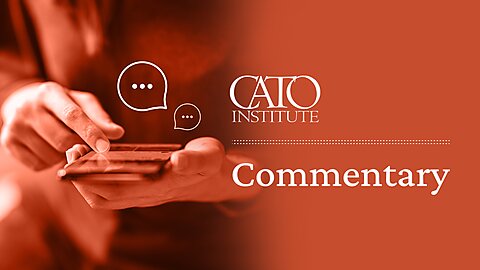Thomas A. Berry
The Fourth Amendment guarantees that “no Warrants shall issue, but upon probable cause.” If an arrest warrant is issued without probable cause that a crime has been committed, the person arrested can sue for “malicious prosecution.” But what if a person is charged with multiple crimes, some of which are supported by probable cause but some of which are not? In that situation, can a person still sue for malicious prosecution? That is the important question the Supreme Court will answer this year, and the answer should be “yes.”
Jascha Chiaverini ran a jewelry shop in Ohio. One day a seller came to Chiaverini’s shop and sold a ring and earring for $45. The seller affirmed that he was the lawful owner of the jewelry. Later that day, Chiaverini received phone calls from a couple alleging that their jewelry had been stolen and that they believed Chiaverini had their jewelry. Eventually two officers came to the store, interviewed Chiaverini, and concluded that the recently purchased jewelry had been stolen. Chiaverini was not charged with a crime on that day. Soon after, he was given conflicting instructions by the police to both hold the jewelry as evidence and return it to the couple.
More than two weeks after this initial interview, one of the officers edited their original police report to include a confession by Chiaverini that he suspected the jewelry was stolen at the moment he bought it. But Chiaverini had said no such thing. On the basis of this false report, Chiaverini was charged with felony money laundering. He was also charged with two misdemeanors, for retaining stolen property and for a licensing violation.
Chiaverini was arrested, strip‐searched, and held in jail for four days. All the charges were eventually dropped, but Chiaverini’s reputation was irreparably damaged. Chiaverini then sued the officers and the city for malicious prosecution. But the US Court of Appeals for the Sixth Circuit held that his claim could not proceed, even if there was no probable cause for the money laundering charge. Under a rule followed by no other circuit, “malicious prosecution” claims cannot proceed in the Sixth Circuit if there is probable cause for any of the other charges brought at the same time. The Sixth Circuit found that there was probable cause for Chiaverini’s two misdemeanor charges, meaning he could not recover for the false felony charge.
Now the Supreme Court has taken Chiaverini’s case, and Cato has filed an amicus brief supporting him (with thanks to a team of attorneys from Loevy & Loevy who took the lead on drafting our brief: Steve Art, David B. Owens, Megan Porter, Lauren Carbajal, Annie Prossnitz, Alyssa Martinez, and Meg Gould). In our brief, we make two key points as to why the Supreme Court should reject the Sixth Circuit’s restrictive approach.
First, courts already have the means to determine whether the addition of a false criminal charge to a warrant listing other legitimate charges inflicted any additional harm on the defendant. That tool is the concept of “but‐for causation,” which asks whether the defendant would have still suffered the same injury if a certain event had not occurred. In this case, a but‐for causation inquiry would ask whether Chiaverini suffered any additional harm because of the felony charge that he would not have suffered if he had only been charged with two misdemeanors.
In many cases, the answer will be “yes,” and the person charged should be allowed to recover damages. Misdemeanor charges often don’t result in pre‐trial detention at all, or at least result in shorter detention times than felony charges. The trial court should be allowed to determine whether Chiaverini spent more time in jail than he would have but‐for the felony charge. The court should also be allowed to determine whether Chiaverini suffered any other unique injuries solely due to the felony charge. And the court should be able to reward him damages if so.
Second, our brief points out that the Sixth Circuit’s rule gives police and prosecutors a perverse incentive to overcharge defendants, because the more charges are brought the greater likelihood that at least one will be found to have probable cause. Overcharging is already a serious problem in the criminal justice system, a problem that has led defendants to accept lengthy plea‐bargain sentences when faced with the risk of decades in prison. Police and prosecutors should not be allowed to insulate themselves from potential liability by bringing even more charges than they otherwise would.
The Supreme Court should reverse the Sixth Circuit and allow Chiaverini a fair chance to recover for the ordeal he was put through.

